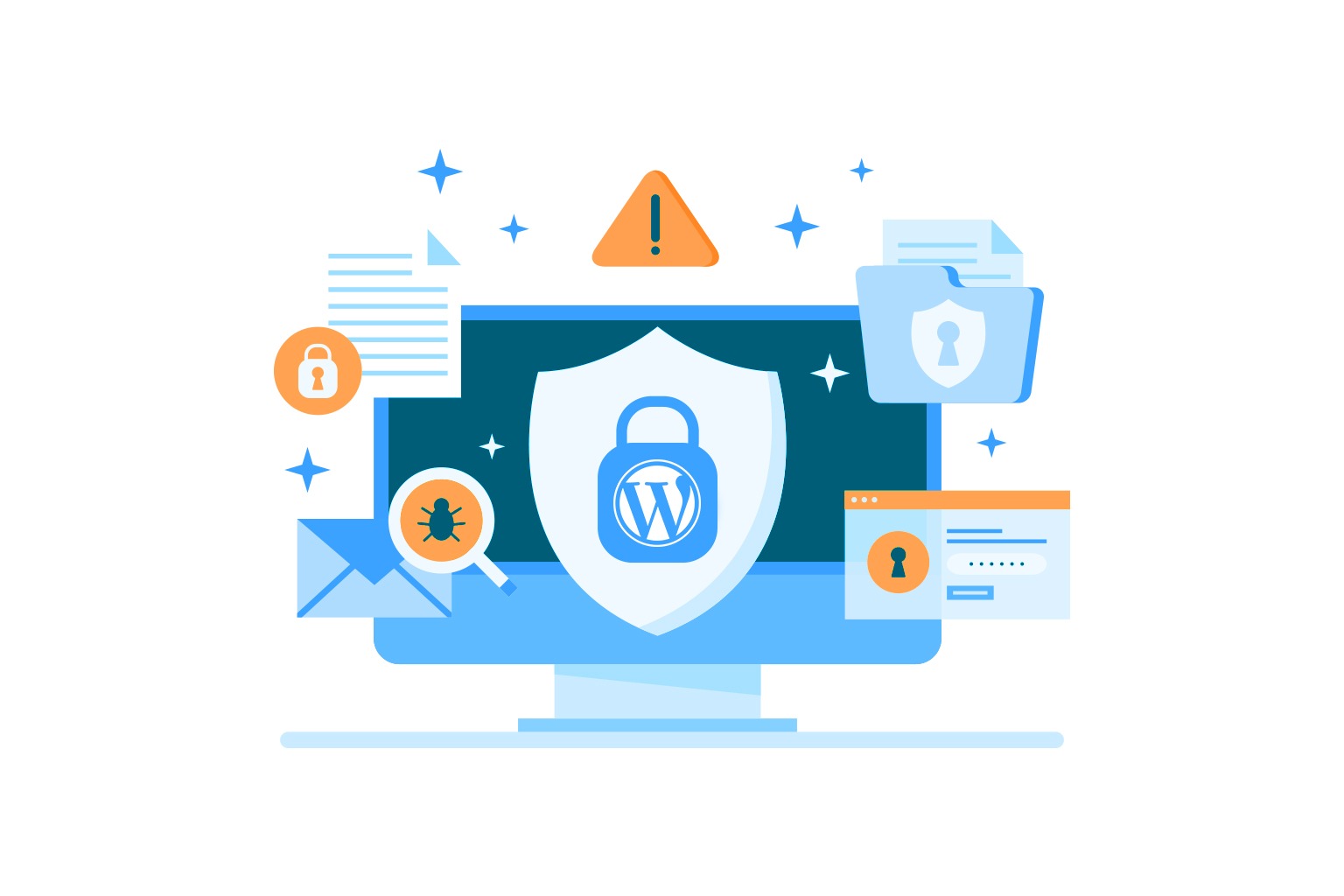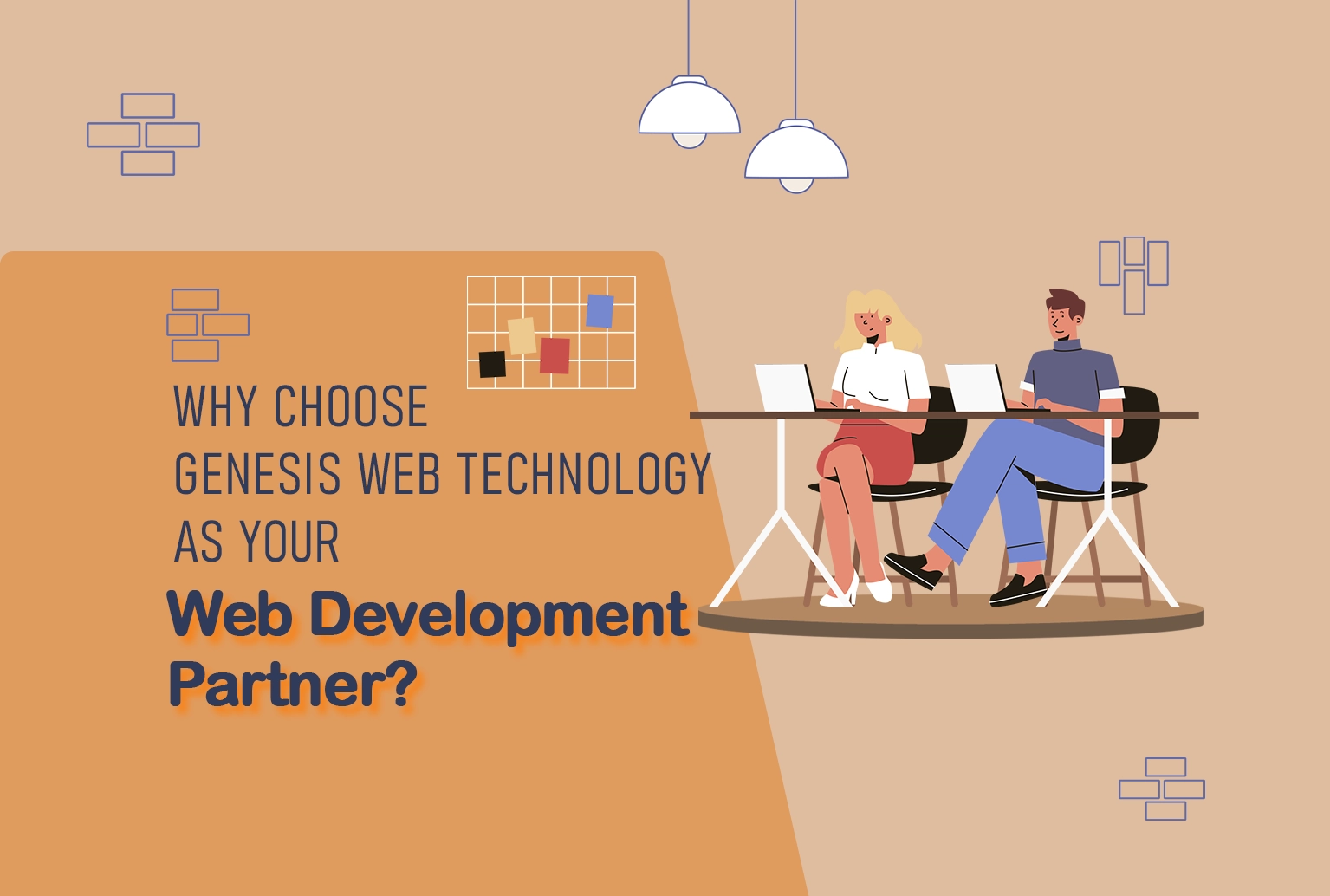Security of a WordPress Website
WordPress is the most widely used content management system (CMS), powering 43.2% of all websites (according to recent statistics). It is true that WordPress is the popular one and there is a cost to this level of popularity. A wide range of fraudsters are drawn towards it and they eventually take advantage of the platform’s security flaws. So it is important to know all the aspects related to the security of a WordPress Website.
By saying this, it does not mean that the security system of WordPress is terrible. Sometimes users’ negligence and their low awareness level of security could lead to a breach.
So, the two question remains, that needs answers before jumping on how to secure the WordPress website.
Is WordPress Completely Secure?
Without a doubt, WordPress is dependable and secure. To address known security issues, the CMS releases regular patches and upgrades. However, the security flaws that exist in the fundamental platform only make up a small portion of them. Harsh but the truth is that the bulk of security problems affecting WordPress sites are caused by the extensibility and sizable plugin and theme library of WordPress.
So, the question asked above completely depends on the website owner. If you are installing the plugins, themes, and any other supportive components and are regularly patching, and updating them; then your WordPress site is secure.
It does not mean, you have to leave WordPress entirely just to make your site secure. If you follow the right path and take the right steps, WordPress Security is just simple as that.
Why is the Security of a WordPress Website Important?
First of all, website security means reducing the risk, not eliminating them. So, here the real question should be like “Why website security is important?”. But I am assuming that you are reading this article means you do have a WordPress site and you should know why the security of a WordPress website is important. I have listed out some points that will help you to know the importance of the security of WordPress.
Insecurity leads to Malware attack
Insecurity leads to malware attack and those attack leads to the exploit of the whole site including its sensitive information, its presence and even there is a chance where it could be distributed to whomever surfing the site. So at the last, such attack/hack will lead to the decrement in sites reputation, loss of money, and depleting the search ranking status of the site.
Visitors deserve the protection
Before understanding this, lets see the real life example. A physical shop deserve a protection against theives, right? So, it is simple as that, your site also needs a protection against the fraudster.
By saying this, every site and its visitors deserve the protection from the fraudster. But if you have a ecommerce site then the security of your customers data and privacy must and will be the top most priority. You should meet some of the standards or compliance, if your site has a functionality of payments.
Important for SEO
In simple terms search engines like Google, or Bing, or any other prefers the secured websites. If the sites are secured then they are more likely to ranks those sites on the top list.
If Search engines found out some flaws in your site then your site will instantly degraded in search ranking.
What if your site is not secured and how it will impact?
- Spam emails sent from a hacked server will results the banned of web server’s IP address.
- Likewise, different hidden tools like miners may be operating in the background that slows down the website.
- The website’s Core Web Vitals score is lowered as a result of extra scripts being loaded when the page loads.
- Due to the website’s defacement or other removal, Google may index the wrong content or stop indexing the site altogether.
- The site is flagged as contaminated by Google’s malware detection, which also prevents visitors from accessing it.
So, there is the most need of security of a WordPress website. And if you want to rank higher, your security needs to be higher too. Also, you can know more about SEO in one of our other Blog Post.
Or you may want to Hire a Professionals who can help you to sort out these things.
How to secure the WordPress Website?
There are a lot of WordPress websites out there that use pre-made themes or plugins to run significant portions of the entire website. Frequently, here is where a troublesome circumstance might develop. An attacker may be attracted to these themes and plugins because by breaking into one, they might possibly get access to a lot of other websites.
WordPress has a sizable development community, and since it is open-source software, security updates are released fairly fast when vulnerabilities are found. At the time of writing, the most recent WordPress release had more than 600 contributors in at least 50 countries, among which 178 new contributors joined a release for the first time.
The key lesson from this is that you’re in good hands if you’re creating a WordPress-based website with a custom front end and updating both WordPress and any plugins. Here are some more considerations to bear in mind for maintaining the security of a WordPress website:
Using Web Application Firewall (WAF)
It’s a good idea to have some sort of firewall on your server, just like you may have antivirus software on your computer.. The majority of managed servers, including WP Engine and Kinsta, provide some sort of WAF solution. Sucuri or Cloudflare alike have WordPress-specific offerings, and such can manage your firewall before requests hits your server.
Modifying default routes
There is one idea of security via obscurity, and this does not mean it will make your software safe on its own. This is just to assist defend against automated attacks. Most of the people thought hacking means there is someone at the computer and he/she is doing all this from there, but, no, sometime the bulk of attacks are automated. There are numerous tools and bots that search the internet for websites that use applications with known vulnerabilities, and once these websites are found, automated tools may be used to compromise them.
So, it is better to modify the default routes/login URL, or you can install WordPress in a subdirectory that will deepen the level of the backend paths. Also, you can relocate the main WordPress configuration file. This will make the automated tools failing at recognizing the site or running their scans.
Running updated versions of PHP
PHP has a slow updates release pattern in the past. Since a few years ago, we can see a lot changes has happened and PHP updates are released often. It is bringing with improvements in performance, stability, and, most crucially, security. It is typically a very simple to be sure that you are working on a current version of PHP.
Also, PHP is widely used now a days and the you can find Reasons for being PHP popular among Web Developers here.
Implementing the Two Factor Authentication (2FA)
2FA, generally refers a process where it will verify the user by two methods during the time of login. In general, it sends a code to the mobile device or any email account when you try to login. If any fraudster get the username and password of your account and try to login then they have to verify again which would reduce the chance of getting hacked.
In simple terms 2FA is an extra degree of protection to a username and password. It guarantees that an attacker will also require access to your email address or mobile device even if a login and password are stolen or compromised elsewhere.
And the good things comes where where you will have access to a variety of 2FA options in WordPress.
Limiting the Login Attempts
A user’s attempts to log in can be significantly slowed down by setting a limit on their number of attempts. A decent mix of security and taking into account human error is typically achieved by limiting the number of login attempts to about 3-5 per hour.
Enforcing the usage of HTTPS everywhere
You may offer your site securely via an HTTPS connection by installing a valid SSL certificate on the server hosting your website. This will ensure that all data passed between a website and a user is encrypted, and this guards against man-in-the-middle attacks. This, man-in-the-middle attacks, might result in password or form data being stolen.
As, we discussed earlier that search engines prefers the secured websites. So, HTTPS is one of the ranking factor for search engine like Google. Also, an additional advantage of using HTTPS is the ability to serve the website and its assets through an HTTP/2 connection. This will more rapidly and effectively send assets to the user’s browser and increase the website’s performance. Once you have an SSL certificate in place, make sure that HTTPS is being enforced throughout the whole website by your web server.
Disabling the built-in File Editor
Theme files may be edited by admins using the built-in editor in WordPress. By enabling this editor, anyone who has access to an admin account will be able to alter the website’s code inside the WordPress admin interface without ever needing to get control of the server. So, it is better to keep this thing turned off always.
Additionally, you should employ a version control system like Git. It would be difficult to publish new versions of the site if files could be edited directly on the web server. This would clash with the version-controlled site.
Keeping WordPress updated
The importance of updating any application used by your website cannot be overstated. It is crucial to make sure you are protected. Fortunately, WordPress and the most of the reliable plugins are often patched. And, if you follow a decent update plan in place (e.g., every two weeks), then the compromised level is reduced.
Conclusion
As being the popular CMS, WordPress websites, in particular, are frequently targeted by hackers. WordPress can be a very dependable and secure content management system by implementing a few precautions. Securing a WordPress site, however, requires ongoing maintenance.
Given that cyberattacks are always changing, you must constantly reevaluate it. Although the danger will always exist, and we Genesis Web Technology are there for you. We have built a substantial number of WordPress sites, and a lot of faith in both our platform and WordPress as a whole.
If you’re in charge of operating a website and believe security could be a problem, then we advise you to partner with a company that can handle this task on your behalf. We’re in a good position to offer the best setting for your project because we are WordPress development professionals.




